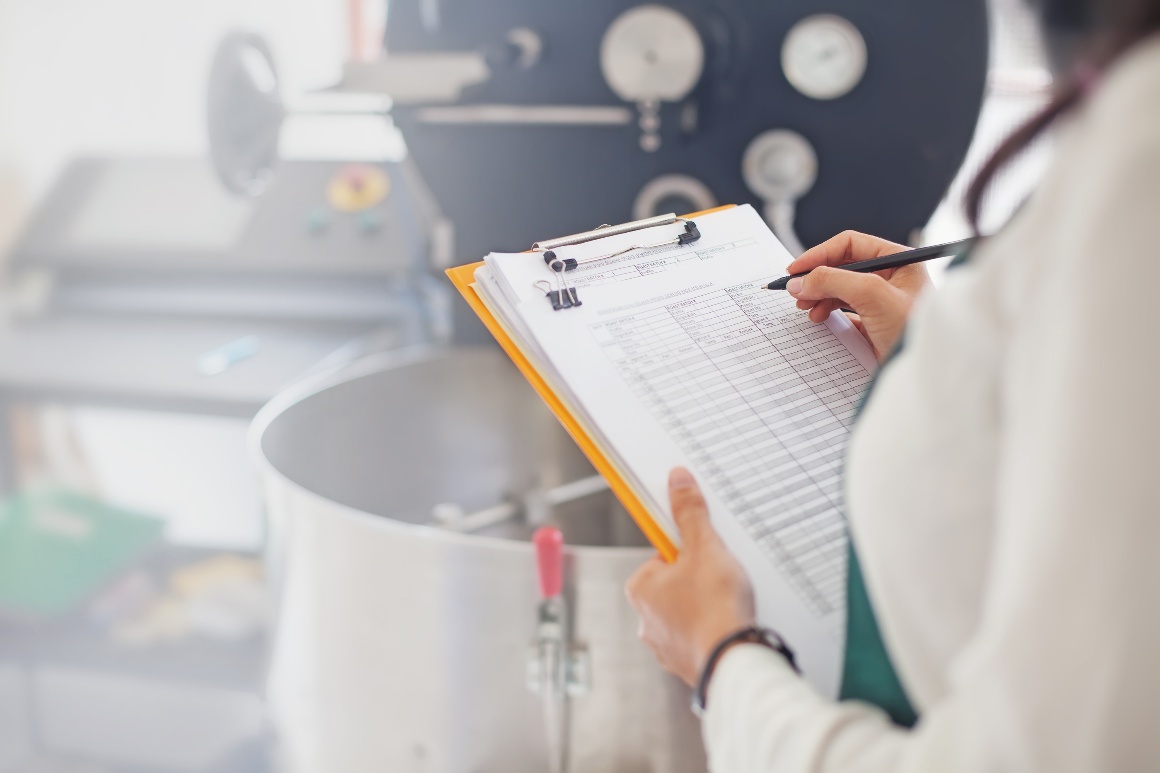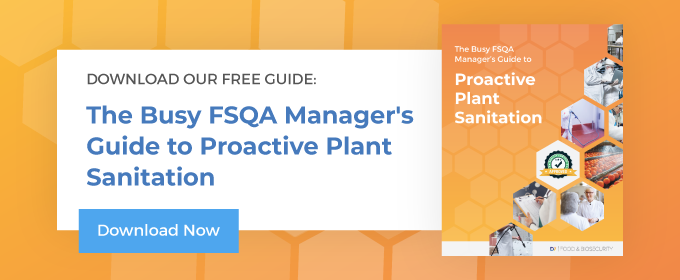
Quality assurance in food processing requires a team effort led by a qualified FSQA manager. The details of cleaning and sanitation are important, but they are just part of the larger picture. Being strategic about your approach to quality assurance will help prevent costly recalls, reduce production downtime, and keep employees engaged.
Use these four strategies for quality assurance in food processing to reduce the risk of an outbreak and to maintain high sanitation standards in your facility.
1. Be Proactive
Preventing an outbreak before it can happen is by far the most cost-effective approach to quality assurance. Being proactive helps protect your brand by avoiding recalls in the first place. Recalls result in hard costs—notifications, removing products from shelves, and so on—not to mention the cost of losing trust with your customers, which cannot be calculated.
Being proactive can also help you prevent lost production. Even if the quality issue doesn’t result in a recall, shutting down production lines to do an unscheduled deep clean can be costly. Not only are you unable to produce as much product, but there are often labor costs as well. Although it might seem like it costs more to be proactive about sanitation and quality assurance, the costs of recalls and shutdowns are actually much higher.
2. Provide Ongoing Training
Even the smartest and most dedicated crews need regular training to keep key concepts fresh and be reminded about the details. In addition to the training provided during the onboarding process, provide additional training throughout the year. Reinforce training content with periodic refreshers and create a program that ensures that sanitation crews are learning throughout the year.
3. Incorporate Quality Assurance into the Culture
When your team is on the same page about the importance of quality assurance in food production, it’s easier to maintain your high standards. Some of the tactics you can use to bring quality to the forefront in your company culture include:
-
- Recognizing individual employees for their outstanding work
- Including tips in weekly team meetings
- Talking about quality assurance during the hiring process
- Making clear how each individual contributes to the solution
When people take pride in their work and know that it is appreciated by others, they do a better job. Build quality into your culture and gain all of the benefits that come with it.
4. Use D7 in Daily Sanitation and Deep Cleans
When it comes to sanitation, the products you use matter. Not only do they need to be effective, but they should also employ foolproof application methods.
D7 is an easy-to-apply foam that reaches all nooks and crannies and provides visual feedback about what areas have been treated. The product has low toxicity so it requires minimal PPE, and and low corrosivity so it can be used on a broad range of surfaces. It is also effective against a range of bacteria, viruses, and other pathogens.*
The formulation has a surfactant that enables it to penetrate biofilms* and remove them without mechanical action. Fast application with no scrubbing required reduces production downtime and saves on labor costs. D7 is suitable both for daily sanitation and deep cleans. It’s also an NSF-certified non-food compound, so you can be confident that it’s safe to use in your facility.
*See label for specific use instructions
Get Started with D7 Today
When you work with Decon7, you don’t just get the products and equipment you need to sanitize your plant—you also get expert consultation. We’ll not only train you to apply the product, but we’ll also work with you to develop a proactive plan to maintain quality assurance in food processing using our foam, spray, and fog products.
If you'd like to learn more about how to maintain high sanitation standards in your facility, download The Busy FSQA Manager’s Guide to Proactive Plant Sanitation.

